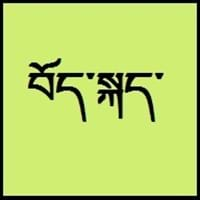Malaysian vs Tibetan
- One of the most politically powerful language historically is Malaysian Language.
- Malaysian earliest known inscriptions were found in South of Sumatra way back in 683-6 AD.
- Tibetan dialects vary alot, so it's difficult for tibetans to understand each other if they are not from same area.
- Tibetan is tonal with six tones in all: short low, long low, high falling, low falling, short high, long high.
Malaysian and Tibetan Language History
Comparison of Malaysian vs Tibetan language history gives us differences between origin of Malaysian and Tibetan language. History of Malaysian language states that this language originated in c. 683 AD whereas history of Tibetan language states that this language originated in c. 650. Family of the language also forms a part of history of that language. More on language families of these languages can be found out on Malaysian and Tibetan Language History.
Malaysian and Tibetan Greetings
People around the world use different languages to interact with each other. Even if we cannot communicate fluently in any language, it will always be beneficial to know about some of the common greetings or phrases from that language. This is where Malaysian and Tibetan greetings helps you to understand basic phrases in Malaysian and Tibetan language. Malaysian word for "Hello" is Hai or Tibetan word for "Thank You" is ཐུགས་རྗེ་ཆེ་། (tujay-chay). Find more of such common Malaysian Greetings and Tibetan Greetings. These greetings will help you to be more confident when conversing with natives that speak these languages.
Malaysian vs Tibetan Difficulty
The Malaysian vs Tibetan difficulty level basically depends on the number of Malaysian Alphabets and Tibetan Alphabets. Also the number of vowels and consonants in the language plays an important role in deciding the difficulty level of that language. The important points to be considered when we compare Malaysian and Tibetan are the origin, speaking countries, language family, different greetings, speaking population of these languages. Want to know in Malaysian and Tibetan, which language is harder to learn? Time required to learn Malaysian is 36 weeks while to learn Tibetan time required is 24 weeks.





